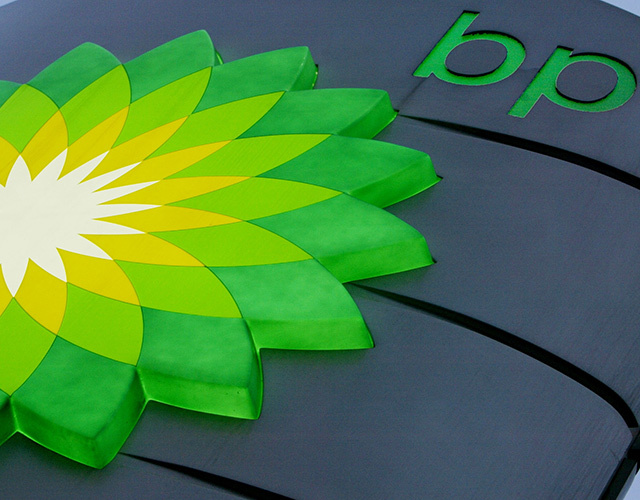
BP Plc’s shares surged the most this year after a London newspaper reported on rumors that Exxon Mobil Corp. sounded out major shareholders over a potential takeover.
While a bid for BP can’t be ruled out, reports about Exxon’s interest have been around for years and analysts from Macquarie Capital Ltd. to Canaccord Genuity said a deal was unlikely.
“The report about Exxon and BP seems to be just a rumor because there doesn’t appear to be an obvious strategic fit,” said Anish Kapadia, a senior research analyst at Tudor, Pickering, Holt & Co International LLP. “It would create a company potentially too big and complex to be manageable.”
Exxon and BP spokesmen declined to comment.
Oil’s current downturn has resulted in just one big deal — Royal Dutch Shell Plc’s $54 billion acquisition of BG Group Plc last year. Others have preferred to do smaller acquisitions as they preserve cash and protect their balance sheets. While oil prices have increased from the 12-year lows of last year, companies are still unsure if the recovery is sustainable.
Still, Irving, Texas-based Exxon has one of the strongest balance sheets in the industry and hasn’t done a deal on such a large scale since the wave of oil-major consolidation in the late 1990s. In contrast, BP has shrunk significantly since 2010 oil spill in the U.S. Gulf of Mexico forced it to set aside more than $54 billion for compensation and penalties.
BP’s Decline
As recently as 2010, BP had the same market capitalization as Shell and produced more oil and gas. Today, BP’s value of $112 billion is about half that of Shell. It’s even further behind Exxon, the world’s most valuable oil company at $337 billion.
As well as the daunting scale of a deal, there’s potentially a poison pill. Any buyer might be forced to accelerate the payment of as much as two-thirds of the more than $20 billion in penalties levied on BP for the Gulf of Mexico oil spill, according to company filings.
“That will significantly add to the costs,” Kapadia said. “It may not be what someone would want to take on.”
That BP’s independence is even up for discussion shows the relative decline of a company that pioneered exports from the Middle East, helped start Alaska’s oil industry and led the exploration of the North Sea.
Since taking over in the months following the accident, Chief Executive Officer Bob Dudley sold about a third of the company’s assets and production has fallen from close to 4 million barrels a day in 2010 to a little more than 3 million. The company is trying to grow again, with a series of deals in the Middle East and Africa last year.
Exxon’s Strength
With almost no debt and billions of dollars of shares repurchased over the past decade, Exxon has the financial power for almost any conceivable transaction. However, marrying the Texan company’s famously buttoned-down engineers with BP’s internal culture could be difficult.
“I don’t see what the point would be of Exxon acquiring the company,” said Iain Reid, an analyst at Macquarie in London. “There’s nothing unique about BP that Exxon can’t get something similar by just buying single assets. If I had money to invest I wouldn’t put in in BP in the hope Exxon would buy the company.”
Such a combination could also be too big, attracting the attention of antitrust regulators around the world. The U.K. might object to the sale of a formerly state-owned firm. In April 2015, following Shell’s acquisition of BG Group, the British government said it would oppose any takeover of BP.
“Given the excitable nature of British domestic politics at the moment, that would require some careful management,” said Alex Brooks, a London-based analyst at Canaccord. “It’s an interesting possibility but it doesn’t seem to me to be particularly likely scenario. I’d think Exxon would have other things to focus on.”
Recommended for you
